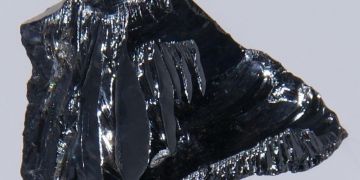The difference between silicon and silicone
In order to fully make the distinction between the mineral silicon and the synthetic material silicone, we will define the two:
Silicon is a naturally occurring substance in nature that is defined as a mineral.
Silicone is a synthetic blend of materials that resemble plastic. Silicone is the material that is used in breast implants as well as medical tubing. Silicone does contain silicon along with oxygen and a variety of other naturally occurring substances in nature, but it is a very different substance to the mineral Silicon.
Silicon within the body
Silicon seems to be necessary for a healthy body, however only trace amounts are needed. It is not entirely clear the exact range of roles it has within the body.
Silicon helps with bone formation. It has been proven to increase the capacity for positive bone structure formation alongside calcium and vitamin D. The correct use of silicon can enhance the effects of calcium and vitamin D within the body. Silicon is best used in this capacity when it is obtained from foods. Individuals who receive more silicon have been shown to have increased bone mineral density. This reduces the effects of weak bones and the onset of osteoporosis. However, this effect is not found in menopausal women.
Silicon helps to regulate the mineralization of bone as well as helping to trigger the deposition of phosphate and calcium within the body. Silicon is also directly linked with decreasing the amount of osteoclasts and increasing the amount of osteoblasts within the body. Osteoclasts are generally defined as cells which destroy bone within the body while osteoblasts are generally defined as cells which help to build bone within the body.
Research
Researchers in the United Kingdom conducted a study in 2005 and found that silicon can only be absorbed in the body as a form of orthosilicic acid. The study was presented at the American Society for Bone and Mineral Research. Individuals who were given this supplement showcased a significant improvement in bone density as well as bone formation.
Silicon does not seem to affect bones that are already being broken down because of age or other conditions.
Silicon also seems to be needed for the synthesis of elastin and collagen, both of which are used to help skin and other tissues maintain their shape.
Other uses of silicon
Although silicon has not been widely studied when used as a supplement for other conditions within the body, many scientists believe that the mineral may actually be used for functions other than the formation of strong bones and tissue. Some possible uses of silicon include: hair loss, digestion problems, sprains, Alzheimer's disease and heart disease.
There are many companies that market silicon as a dietary supplement that can help with the above conditions; however, none of these claims have been proven through study or upheld by the FDA.
Summary
If you are looking to improve your health through the ingestion of silicon supplements, it is best if you take the supplement with food during the meal. Silicon has been proven to be safe in low dosages. Higher dosages that are meant to help with increasing bone formation should be overseen by a reputable medical professional.





